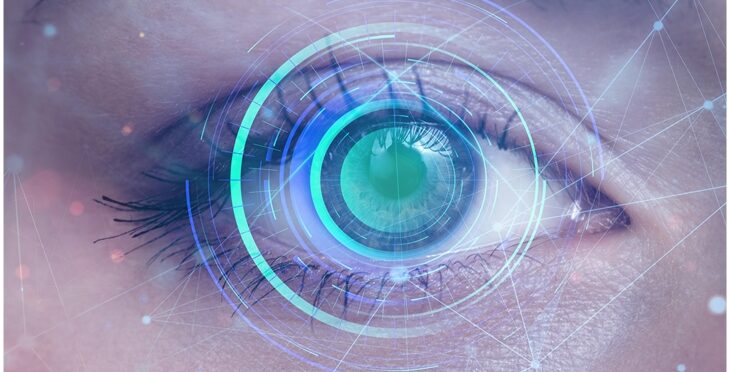Eyecare Near Me: Comprehensive and Reliable Vision Providers
Eyecare Near Me: Comprehensive and Reliable Vision Providers
Blog Article
Comprehending the Numerous Eye Issues Treated by Specialized Eye Treatment Professionals
In the world of eye care, specialized professionals play an essential role in detecting and treating a wide selection of eye conditions. As we embark on this expedition of the various eye problems attended to by specialized eye care professionals, it becomes evident that the complex web of eye health holds a myriad of remarkable insights waiting to be revealed.
Typical Refractive Errors
Refractive mistakes are common aesthetic conditions brought on by an imperfection in the eye's capability to appropriately concentrate light, causing blurred vision. One of the most prevalent sorts of refractive mistakes include myopia (nearsightedness), hyperopia (farsightedness), astigmatism, and presbyopia. Nearsightedness happens when the eyeball is also lengthy or the cornea is also curved, creating remote challenge show up fuzzy. Hyperopia, on the other hand, occurs when the eyeball is also short or the cornea is as well level, leading to close-by items running out focus. Astigmatism is identified by an irregularly designed cornea, resulting in distorted or obscured vision in all distances. Presbyopia is an age-related condition where the lens sheds its adaptability, making it challenging to focus on close items.
These refractive mistakes can be dealt with via numerous approaches, including eyeglasses, contact lenses, or refractive surgery. Eye treatment experts play an important function in diagnosing and managing refractive mistakes to assist people attain clearer vision and improve their lifestyle.
Age-Related Eye Conditions
As individuals age, their eyes might be at risk to a variety of conditions beyond refractive errors that can impact their vision and overall ocular health. Age-related eye problems prevail and can considerably influence the lifestyle for older grownups. One of the most prevalent age-related eye problems is age-related macular degeneration (AMD), a condition that triggers main vision loss and can make activities like analysis and driving difficult. refractive surgeries in al. Cataracts, an additional common problem amongst older people, create clouding of the eye's natural lens, leading to blurred vision. Glaucoma, identified by damage to the optic nerve, is also extra prevalent with age and can lead to field of vision loss or blindness if left unattended. Furthermore, presbyopia, a problem where the eye's lens sheds flexibility, is an all-natural component of aging and results in trouble concentrating on close objects. Routine eye tests with specialized eye care professionals are essential for early detection and monitoring of these age-related eye problems to preserve vision and preserve ocular wellness as individuals age.
Vision-Threatening Conditions
Vision-threatening conditions incorporate a series of severe eye problems that have the prospective to dramatically influence a person's vision and general visual feature. These conditions pose a danger of long-term vision loss if not quickly diagnosed and dealt with by specialized eye treatment experts. Some common vision-threatening illness include glaucoma, diabetic retinopathy, age-related macular deterioration (AMD), and retinal detachment.
Glaucoma is a team of eye conditions that damage the optic nerve, often due to high intraocular stress, causing peripheral vision loss and potential loss of sight if left without treatment. Diabetic retinopathy is an issue of diabetic issues that affects capillary in the retina, triggering vision impairment or loss of sight. AMD is a progressive problem impacting the macula, leading to main vision loss. Retinal detachment happens when the retina divides from its underlying tissue, causing sudden vision loss that needs immediate clinical focus (refractive surgeries in al).
Very early detection, routine eye tests, and timely treatment are essential in taking care of vision-threatening diseases to maintain vision and keep quality of life. Specialized eye check this site out treatment specialists play an important duty in diagnosing, dealing with, and handling these problems to stop irreparable vision loss.

Corneal Disorders
Corneal problems encompass a range of conditions that affect the transparent front component of the eye, understood as the cornea. These problems can result in pain, visual disruptions, and in extreme situations, vision loss. One common corneal condition is keratoconus, where the cornea thins and protrudes outside right into a cone shape, triggering astigmatism and obscured vision. Corneal dystrophies, read review such as Fuchs' dystrophy, result in progressive vision loss as a result of irregular down payments in the cornea. Corneal abrasions, typically created by injury or foreign items, can bring about pain, inflammation, and level of sensitivity to light. Additionally, infections like keratitis can inflame the cornea, possibly leading to scarring and vision impairment if not immediately dealt with. Treatment for corneal disorders varies relying on the specific condition however might consist of drugs, call lenses, or in severe cases, corneal transplants. Routine eye examinations are essential for early detection and management of corneal conditions to protect vision and eye health and wellness.
Neurological Eye Conditions
Neurological eye conditions entail problems that impact the connection between the eyes and the mind, affecting aesthetic processing and overall eye feature. These problems can materialize in various ways, influencing vision, eye activities, and also the control between the eyes. One typical neurological eye problem is optic neuritis, identified by inflammation of the optic nerve resulting in vision loss, color desaturation, and discomfort with eye activity.
One more considerable problem is nystagmus, where the eyes make recurring, uncontrolled activities, impacting visual skill and depth assumption. Furthermore, conditions like amblyopia, often described as "lazy eye," arise from irregular visual growth in early childhood years, causing decreased vision in one eye.
Neurological eye problems require customized care from specialists like neuro-ophthalmologists who have expertise in both neurology and ophthalmology. Diagnosis often includes a comprehensive eye assessment, imaging studies, and partnership with specialists to deal with the underlying neurological concerns impacting the visual system. Therapy strategies can include medicine, vision treatment, or in severe situations, medical interventions to handle these intricate conditions successfully.

Conclusion
Finally, specialized eye treatment experts deal with a large range of eye problems, consisting of typical refractive mistakes, age-related eye conditions, vision-threatening illness, corneal problems, and neurological eye problems - refractive surgeries in al. By comprehending these numerous conditions and looking for ideal treatment from eye treatment professionals, individuals can keep optimal eye health and vision. It is necessary to focus on regular eye assessments and explanation adhere to recommended treatment strategies to maintain and safeguard one's vision for the future
Report this page